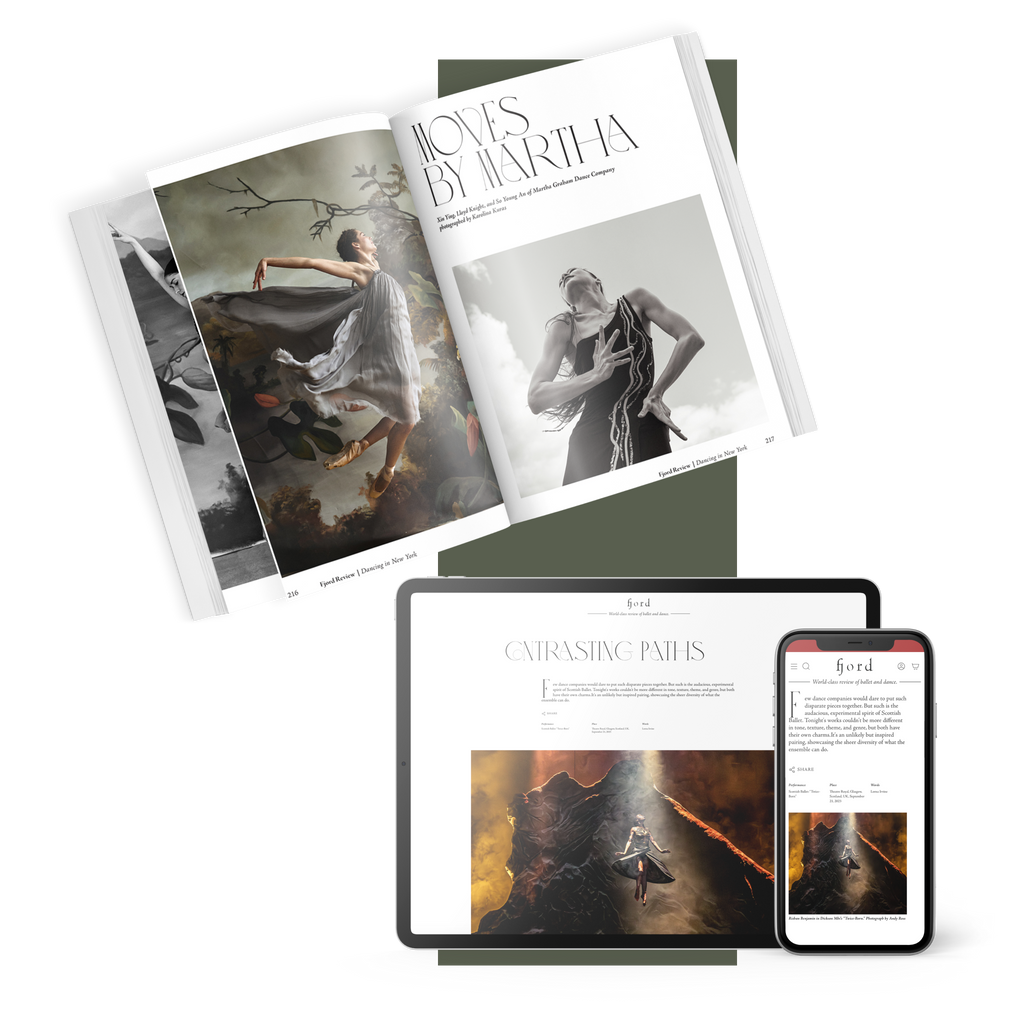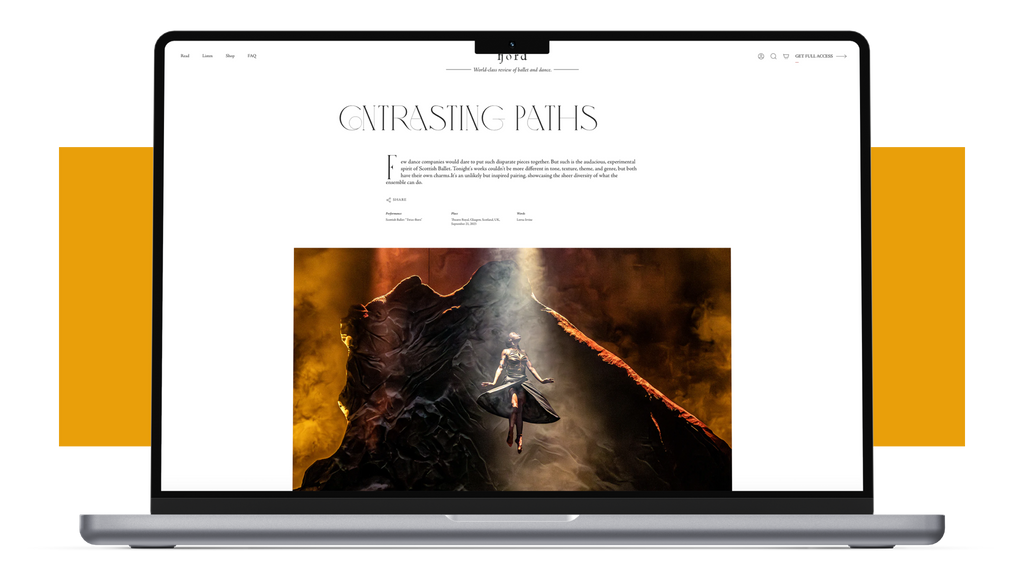From Street to Stage
Hubbard Street Dance Chicago was in New York for a two-week run March 12–24 at the Joyce Theater, a venue that consistently programs excellent smaller dance companies in its 472-seat theater.
Continue Reading
World-class review of ballet and dance.
The first thing that you see as you enter the space is the slumped body of performer/dancer Caroline Bowditch on a bright yellow table, looking in a mirror at herself, looking at the audience looking back at her. Such an act is a statement of intent: Edinburgh Fringe sell-out “Falling in Love with Frida” is both self-reflexive portrait and a homage to the great Mexican painter Frida Kahlo (1907-54).
Performance
Place
Words

Caroline Bowditch's “Falling in Love with Frida”. Photograph by Anthony Hopwood


“Uncommonly intelligent, substantial coverage.”
Already a paid subscriber? Login
Hubbard Street Dance Chicago was in New York for a two-week run March 12–24 at the Joyce Theater, a venue that consistently programs excellent smaller dance companies in its 472-seat theater.
Continue ReadingThe legendary Cuban dancer Carlos Acosta trained relentlessly to come out of retirement last year for a performance of classical works in celebration of his 50th birthday at the Royal Ballet, where he spent most of his professional career.
FREE ARTICLEThe Dance Theater of Harlem returned to City Center this week for the first time under the leadership of Robert Garland, a former company dancer, school director, and resident choreographer. This was the launch of an exciting new beginning, though the troupe was simultaneously celebrating its past.
Continue ReadingDespite the fact that dance and music are often regarded as inextricably linked, it remains astonishing to experience the work of a choreographer who channels the score particularly well—or a group of dancers who embody it especially organically. Repertory Dance Theatre’s 58th season closer, “Gamut,” happened to have both.
Continue Reading
comments